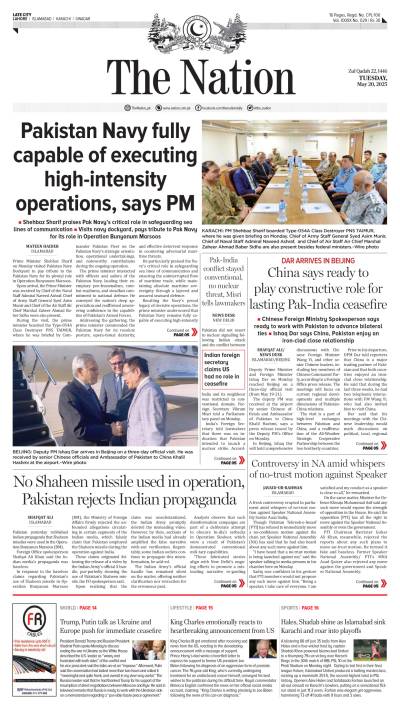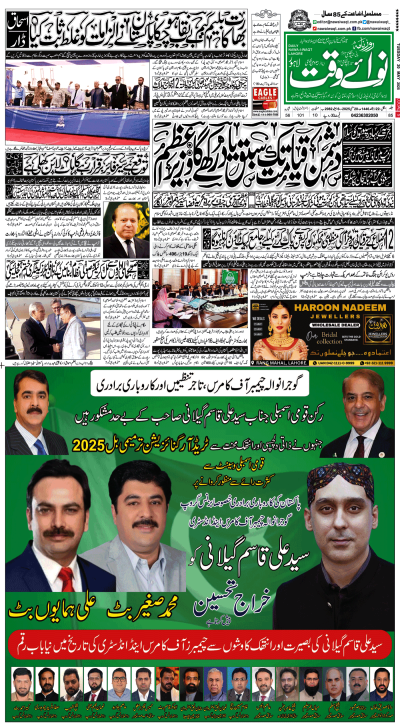In the backdrop of the events on 9th May, the Corps Commanders’ meeting was held on 15th May, followed by the Formation Commanders’ huddle. During these meetings, the Army leadership expressed their unwavering determination to punish all those involved in the attacks on military installations, as well as the individuals responsible for the martyr’s memoirs, the planners, facilitators, and masterminds. They further decided that the trials of these individuals would be conducted under the Pakistan Army Act and the Official Secrets Act, indicating that their fate would be determined by the military courts. The National Security Council, government, and parliament also endorsed this decision, leaving no doubt about how the perpetrators of these heinous crimes would be dealt with.
The question arises as to why the DG ISPR had to hold a press conference on 26th June and what its significance is in terms of timing and purpose. In my view, the developments that necessitated the reiteration of the Army leadership’s stance on the issue include a campaign among certain legal circles opposing the trial of civilians in military courts, framing it as a human rights issue, and petitions filed in the Supreme Court seeking a decree to prohibit the anticipated trials.
During the press conference held one day before the expected announcement of the verdict by the Supreme Court, the DG ISPR stated that the military leadership was united in their belief that May 9 would never be forgotten as a black day in the country’s history, and that all the individuals involved, including the culprits and their facilitators, would never be forgiven, regardless of their political affiliation. This clearly indicated that there was no possibility of retreating from this stance and resolve.
It was revealed that the Army, under its self-accountability process, had dismissed three officers, including a Lieutenant General, from service, while strict disciplinary action had been taken against 15 other officers, including three Major Generals and seven Brigadiers. This was intended to convey the message that if the Army did not spare its own men found guilty of failing to ensure proper security of military installations, there was no way they would spare those who actually carried out attacks on military installations and those who planned and masterminded them.
It was also revealed that 17 standing military courts, already established under the Army Act, were functional and that trials of 102 culprits were already underway in those courts, with their cases referred by civil courts after examining all the evidence.
However, the new aspect added to the previously expressed resolve of the Army was that, in addition to the executors, facilitators, planners, and masterminds of these attacks, anyone who created obstacles in punishing these planners of the May 9 actions would also be dealt with strictly, with the support of the people of the country, which has been evident since that fateful day.
There is a prevailing impression that the judiciary is divided into like-minded judges, led by the Chief Justice, and those who do not endorse the way things are being handled by the former group. Justice Qazi Faiz Isa and others have repeatedly reinforced this impression through their observations.
The prioritization of petitions filed by the PTI and its leaders, particularly by Imran Khan, while issues of crucial national importance are being neglected, further complicates matters. A prime example is the pending petition filed by the Pakistan Bar Council against the interpretation of Article 63-A of the constitution by the Supreme Court, which has been awaiting a decision for the last nine months. Allegedly, the like-minded judges have also taken unprecedented actions beyond their powers, such as suspending the Supreme Court Practices and Procedures Act even before its promulgation.
The judiciary is considered the most revered institution of the state, and its members deserve utmost respect. Unfortunately, our judicial history is filled with appalling decisions by compliant and unscrupulous judges that have had a profound impact on Pakistani politics. This history keeps repeating itself, and this trend must come to an end. The judges must earn respect through their unbiased verdicts in the cases brought before them.
Tuesday, May 20, 2025
Significance of presser by DG ISPR

The writer is a freelance columnist. He can be reached at ashpak10@gmail.com.
EU approves its 17th sanctions package against Russia
3:36 PM | May 20, 2025
Govt declares public holiday on May 28 to mark Youm-e-Takbeer
2:40 PM | May 20, 2025
Pakistan plans to secure $4.9bn in commercial loans for FY2025-26
2:33 PM | May 20, 2025
US cancels another $60M in grants to Harvard University
1:14 PM | May 20, 2025
Excavation resumes at Mohenjo Daro after 18 years, UNESCO leads effort
1:12 PM | May 20, 2025
-
Lahore emerges among safest global cities in Numbeo 2025 index
-
Lahore emerges among safest global cities in Numbeo 2025 index
-
India’s suspension of Indus Water Treaty legally baseless
-
Seventh polio case reported in Pakistan amid nationwide vaccination drive
-
Pakistan reports sixth polio case of 2025
-
PTA begins issuing VPN licences to regulate usage
The Wider War
May 20, 2025
Margalla on Fire
May 20, 2025
Defeated and Depressed
May 20, 2025
Regional Reset
May 19, 2025
Peak Potential
May 19, 2025
Worse than Anarchy
May 20, 2025
Salute to our Air Force
May 20, 2025
An Unbreakable Wall
May 20, 2025
Profiteering Milk
May 20, 2025
Rewriting the Rules
May 20, 2025
ePaper - Nawaiwaqt
Nawaiwaqt Group | Copyright © 2025





